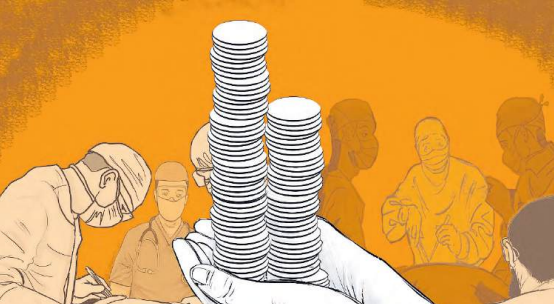

"For every dollar invested in surgery, the return on investment is substantial – estimated to be up to tenfold – due to economic gains from preventing premature deaths and disabilities. This is driven by increased productivity and reduced healthcare costs over time. The real question is not whether Africa can afford to invest in surgery but whether it can afford not to.”
These words, shared in my recent article on Africa’s surgical crisis in Devex, earned me an invitation to Washington, DC for Devex World, where global leaders gathered to discuss the development agenda.
While the experience was inspiring, many discussions remained high-level and focused on the big picture. And while I deeply value strategic vision, I believe that real change often comes from pragmatic, local solutions.
Take my own story. I run a diagnostic business, funded by an Equity Bank loan, that has been struggling to survive. For over a year, I’ve sought to integrate into the Equity Afya network—a system designed to connect healthcare providers, facilities and businesses.
I’ve reached out to high-level executives and even local providers, but each attempt has been met with silence. This is a story I struggled to write. Admitting failure is never easy, and referencing a specific institution risks being seen as personal criticism.
But my intent is not to dwell on my challenges; it’s to illustrate a broader issue in the hope of sparking constructive change. My story is not unique.
Across Africa, countless small healthcare businesses face similar struggles—supported by institutions on paper but often left isolated in practice. This disconnect stifles potential and weakens the broader healthcare ecosystem.
What’s frustrating is that the solution to my business challenges already exists within Equity’s ecosystem. Equity Afya is a powerful model, one that has the potential to transform healthcare delivery by creating a network of mutually reinforcing services.
Yet, the inability—or unwillingness—to bring small businesses like mine into this system undermines its potential. Why should I be on the brink of defaulting on a loan when the institution providing that loan has the tools to ensure my success?
This is not just about my business. Every diagnostic centre that closes means fewer patients receiving timely diagnoses, fewer healthcare jobs, and less access to quality care for underserved communities. Studies show that small businesses are responsible for 60-70 per cent of global employment, yet their survival often hinges on the strength of partnerships and networks.
In healthcare, the stakes are even higher—failed businesses mean delayed or missed opportunities to save lives. Contrast this with stories of successful partnerships. I think of a colleague who managed to integrate their pharmacy into a health network, gaining access to a steady flow of patients and reliable supply chains.
The partnership didn’t just save their business; it improved access to affordable medicine for hundreds of families.
This is the power of collaboration— when institutions and businesses work together, the impact multiplies. What could make a difference? Practical steps that transform big-picture strategies into tangible action.
This include establish a dedicated support team focused on helping small healthcare businesses like mine integrate into the Equity Afya network; and foster mentorship programmes by pairing struggling businesses with those that have successfully navigated similar challenges to share best practices and insights.
Also, develop tailored financing models— this could be done by offer flexible financing solutions tied to performance milestones within the network, reducing the risk of default for both parties. And finally hosting collaborative forums such as roundtable discussions with small business owners to co-create solutions that work for everyone.
Such steps would reflect the principle of thinking win-win. When big players actively support the businesses they fund, they don’t just help those businesses thrive—they strengthen the entire ecosystem. This aligns with global goals like SDG 8 (Decent Work and Economic Growth) and SDG 3 (Good Health and Well-Being), creating a ripple effect that benefits communities and economies alike.













